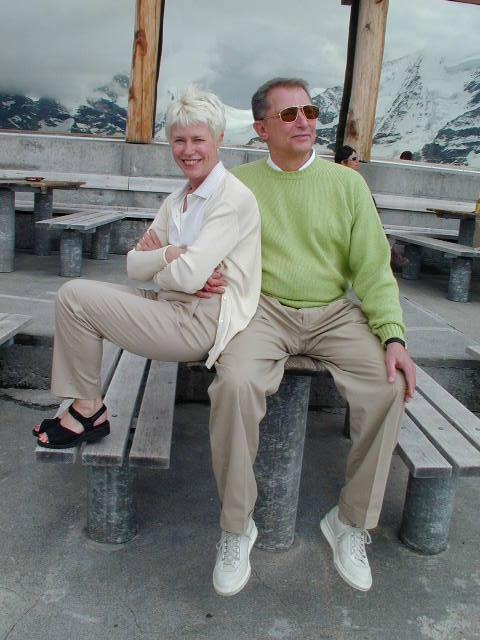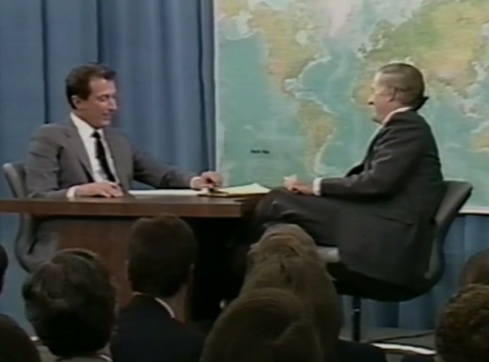You are currently browsing the category archive for the ‘About Werner Erhard’ category.
Follow the ideas of Werner Erhard through time in this compilation of his work and ideas. The timeline illustrates the development of Werner Erhard’s work, for personal, business and academic communities, including notable expressions and acknowledgements, from the inception of Erhard‘s models for transformation made widely available in 1971 through to the present.
“Educational research confirms that without a significant intervention, students who become teachers are likely to replicate the pedagogical approaches their teachers used with them. Practicing Erhard’s approach to ontological inquiry provides such an intervention. It equips students, teachers, academics of any field to critically examine their dispositions and access more effective ways of being and acting.”
-Carolyne J. White, Professor of Social Foundations, Department of Urban Education, Rutgers University Newark

About the new book, Speaking Being: Werner Erhard, Martin Heidegger, and a New Possibility of Being Human, professor James R. Doty writes: “The profound impact of Werner Erhard’s work on culture and society is a manifestation of an incredible insight, the experience of being, presented in this book through a comparative analysis of a transcript of a 1989 Forum led by Erhard alongside Heidegger’s reflections on the meaning of “being there.” The authors have drawn amazing parallels between these two extraordinary thinkers and have demonstrated the intersections of Heidegger’s language with Erhard’s ontological rhetoric of transformation. Erhard has at times described aspects of his method as ruthless compassion, and like all forms of compassion, evident here is a fundamental motivating desire to alleviate the suffering of others.”
James R. Doty, MD is the Founder & Director of The Center for Compassion and Altruism Research and Education and Professor of Neurosurgery at Stanford University School of Medicine. He is also the Senior Editor of the Oxford Handbook of Compassion Science
My notion about service is that service is actually that kind of relationship in which you have a commitment to the person. Service is about knowing who the other person is, and being able to tolerate giving space to their garbage. What most people do is to give space to people’s quality and deal with their garbage.
Actually, you should do it the other way around. Deal with who they are and give space to their garbage.
Keep interacting with them as if they were perfect. And every time you get garbage from them, give space to the garbage and go back and interact with them as if they were prefect. ~ Werner Erhard

Werner Erhard and Gonneke Spits, 2010
Every era has a relatively small number of original and influential persons, those who generate initiative, discoveries, achievements and insights which shape our own cultures and societies — and often those of future generations. If we know these people well, it is through their works: their campaigns and institutions, their books and inventions, their vaccines, their symphonies, their monuments and their firms.
The Saturday Satellite Series with Werner Erhard was a program designed to give us a new access to such people — a glimpse of the commitments and visions that inform such lives, and that serve as the source of their creations. The series was conducted as a dialogue between Werner Erhard and prominent guest speakers who are widely recognized for their achievements and expertise. These dialogues were designed not to present particular views, but to open an inquiry that elicits creative thinking and productive action from and for all participants.
“Contributing Transformation in the World” by Werner Erhard, as published in the est Graduate Review, March 1980
In manifesting your aliveness, you will want to follow a principle which was beautifully stated by Albert Schweitzer when he said, “I don’t know what your destiny will be, but one thing I know: The only ones among you who will be truly happy are those who have sought and found how to serve.” Notice that Dr. Schweitzer says “sought and found how to serve.” He did not say “try to serve,” or “try something and drop it,” or “do the best you can.”
Happiness comes from having served successfully.
One continues to expand in one’s ability to serve by meeting the challenge of actually delivering the results.
Decide on a project for which you are willing to take complete responsibility. Complete the project successfully. Relate this achievement to others as an inspiration for them. Your willingness to express yourself may be just the trigger needed by someone else to do something for themselves. From now on, don’t wait for something to happen to you. Actually take responsibility for making something happen. Keep at it until you make it a successful experience for everyone. You can make the difference.
“Harvard economist Michael Jensen, who is famous in financial circles for championing the concepts of shareholder value and executive stock options, “I became convinced we should work to get this kind of transformational material into the academies,” he said, adding that he considers Mr. Erhard “one of the great intellectuals of the century.”
Peter Haldeman – New York Times, November 29, 2015
“Werner Erhard paced the aisle between rows of desks in a Toronto conference room. “If you’re going to be a leader, you’re going to have to have a very loose relationship with this thing you call ‘I’ or ‘me,’” he shouted. “Maybe that whole thing in me around which the universe revolves isn’t so central! Maybe life is not about the self but about self-transcendence! You got a problem with that?”
No one in the room had a problem with that. The desks were occupied by 27 name-tagged academics from around the world. And in the course of the day, a number of them would take the mike to pose what their instructor referred to as “yeah buts, how ‘bouts or what ifs” in response to his pronouncements – but no one had a problem with them.
Peter Haldeman – New York Times, November 29, 2015
“The Hunger Project came about through something that Werner Erhard thought about for many years. He studied the subject and discovered that it lived inside of a condition of inevitability, that we human beings held hungar as inevitable. It would always be there. It always has. Isn’t it tragic, isn’t it too bad, and let’s make gestures toward it. A little bit the way that make gestures toward victims of an earthquake or a tidal wave, which helps in the short-term but allows the condition to persist. So Where Erhard wrote something called The Hunger Project source document, which had all the underpinnings of the philosophy of The Hunger Project: That number one the individual makes a difference. That only an individual can take a stand. Only an individual can lead a committed life. An organization or an entity or an institution can reflect an individual’s commitment, but it itself doesn’t take a stand. So the individual truly is the key to causing global change.”
–Catherine Parrish, Former CEO of the Hunger Project US and executive director of PRASAD (Philanthropic Relief, Altruistic Service and Development)

